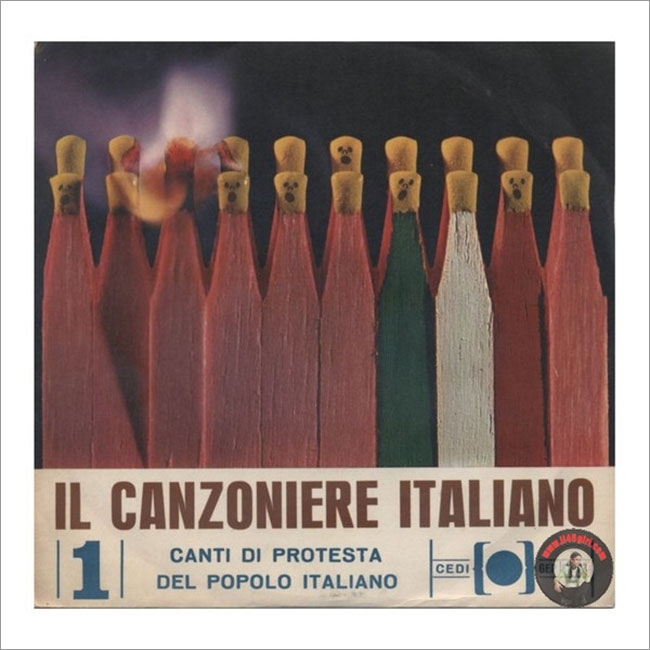1968 and the protest song

“[…] the Nuovo Canzoniere Italiano would have the merit not only of reviving the anarchist, socialist and communist repertoire (with many songbooks made up of the songs of I dischi del Sole) but also of providing the 1968 protest movement with a collection of political songs, while its organization and experiences would multiply and set an example for many political groups in the creation of their repertoires: from the Marxist-Leninists to Potere Operaio, from Lotta Continua to the Anarchists, from Manifesto to the Red Brigades.
The experience of the Nuovo Canzoniere Italiano would also indirectly influence right-wing movements such as the Fascist Boia chi molla and the Catholic fundamentalist Comunione e Liberazione.More interestingly, the activity of the Nuovo Canzoniere Italiano would directly and indirectly form the basis for the development of a factory songbook.
Throughout the 1960s and 70s, new songs are sung and produced in the factories, both during occupations and strikes, and during political marches and street demonstrations (…)
Often in the factory songs repertoire there is a re-appropriation and renewal of the working class cultural heritage now mainly learned through the Dischi del Sole (as many as 276 were produced between 1960 and 1980) and through the performances of the Nuovo Canzoniere Italiano (as many as 569 in the years between 1973 and 1977).
In those years, the protest song repertoire was also disseminated by the consumer industry which managed to successfully commodify part of it. But the song form that was chosen to interfere in the musical flow imposed by mass media was above all the parody of the commercial song, which worked precisely because it is a combination of different and contrasting elements that tends to produce a conscious disturbance in the hegemonic communication.”
Cesare Bermani, “Due secoli di canto sociale in Italia”, in Note di rivolta, Volontà n. 1-2, 1993.
